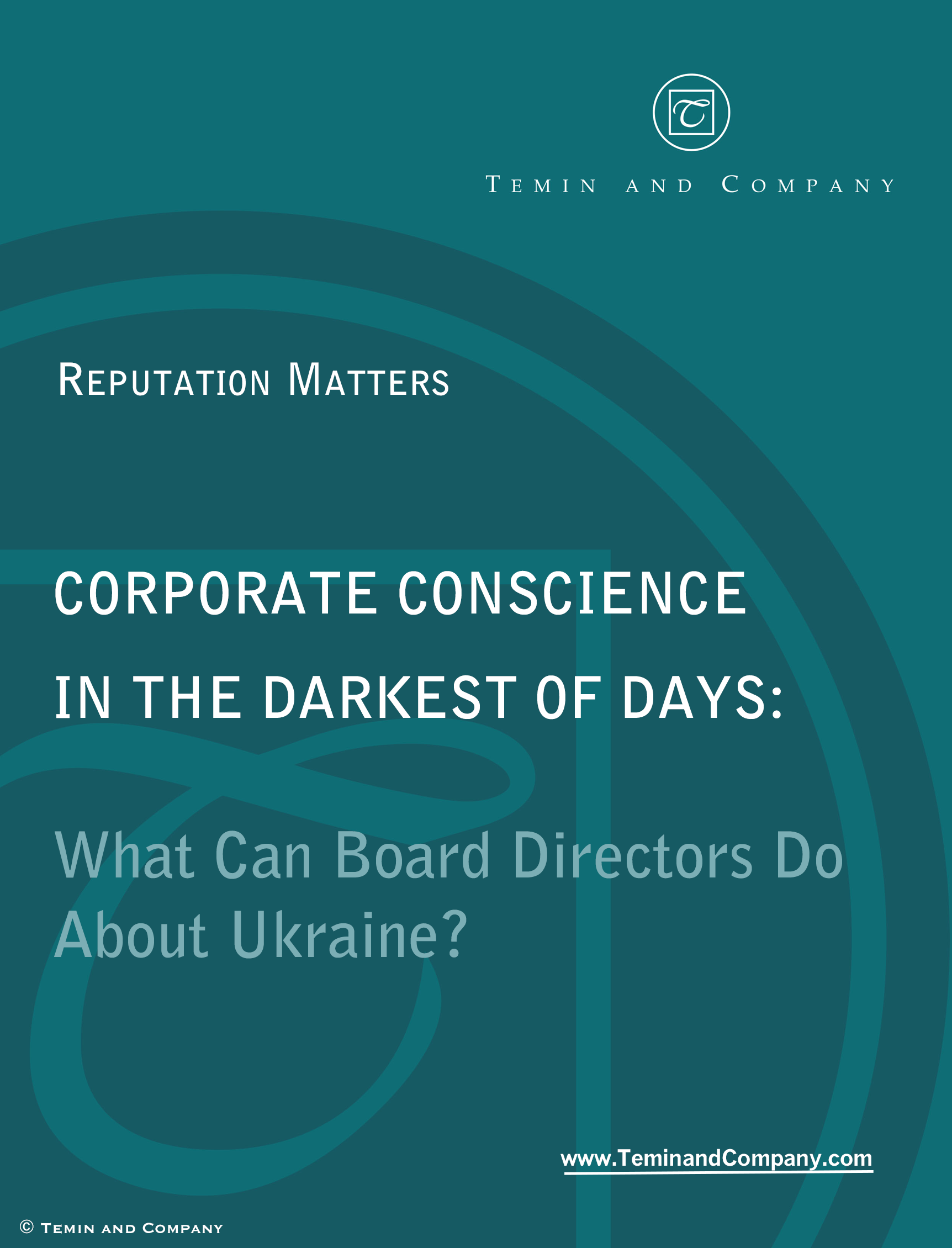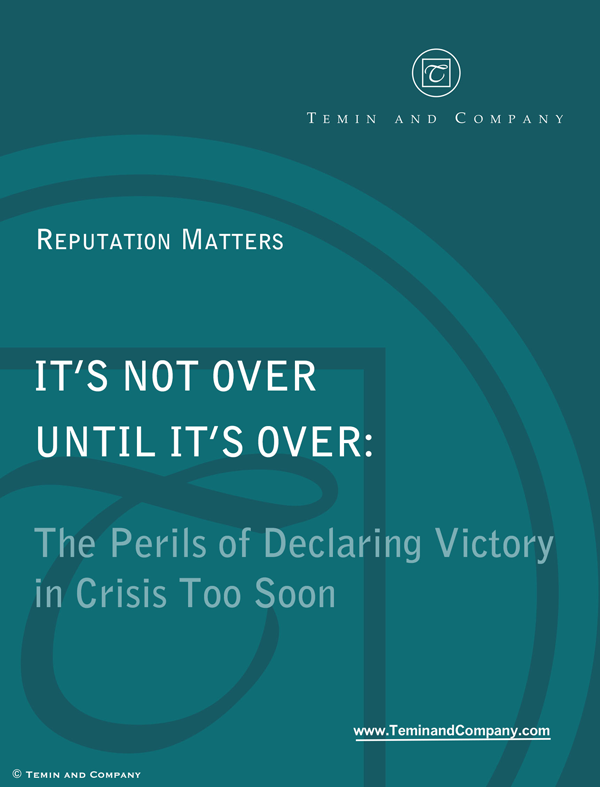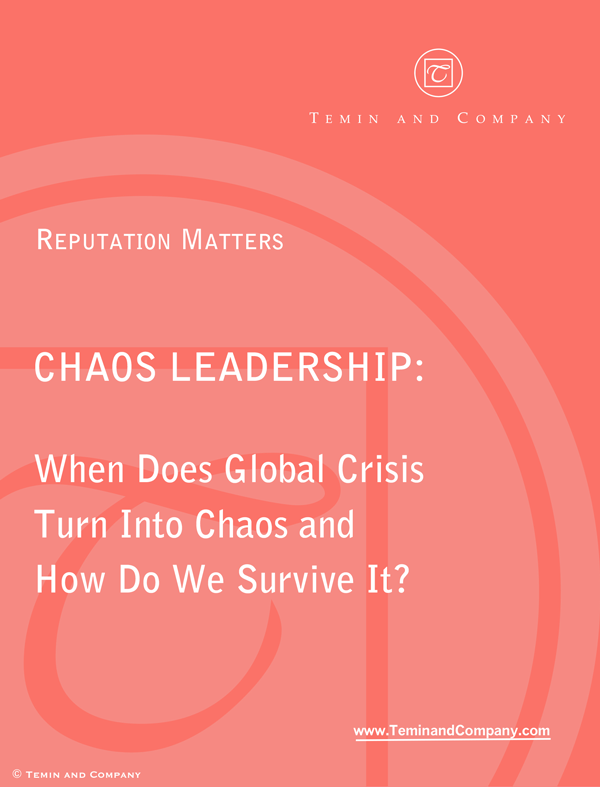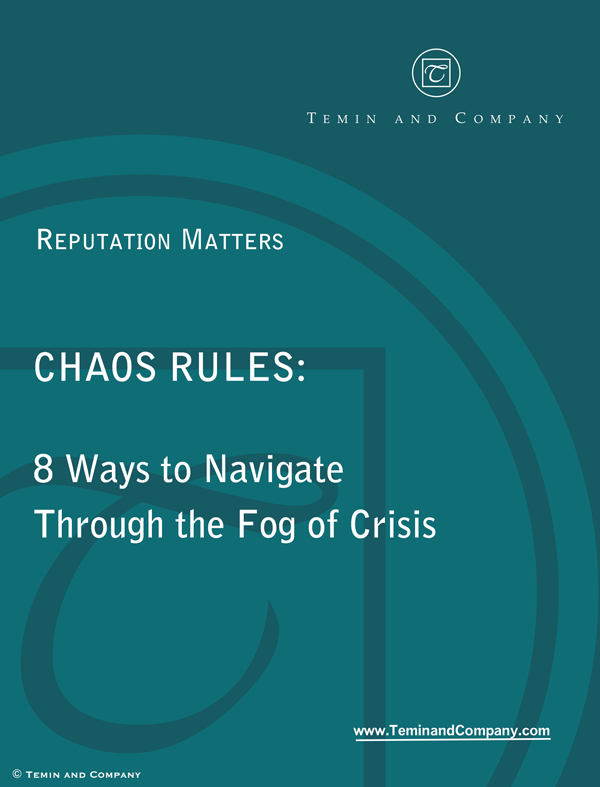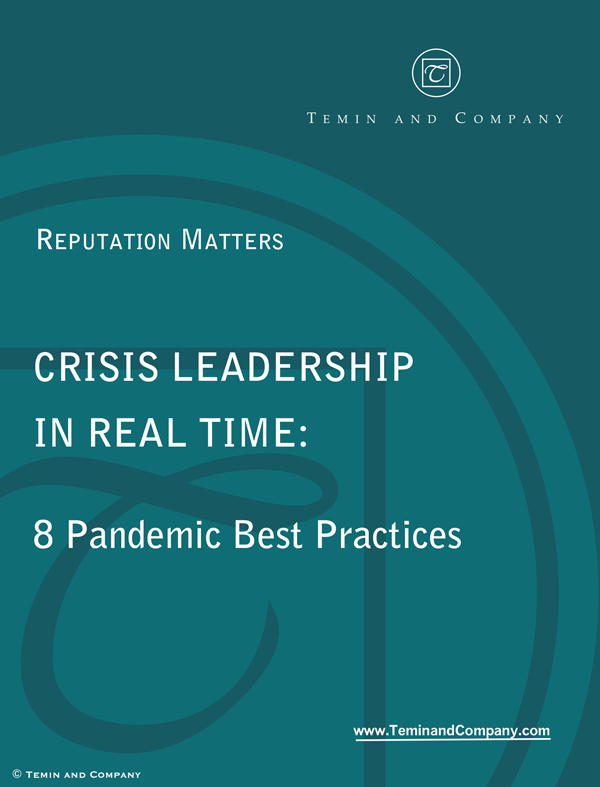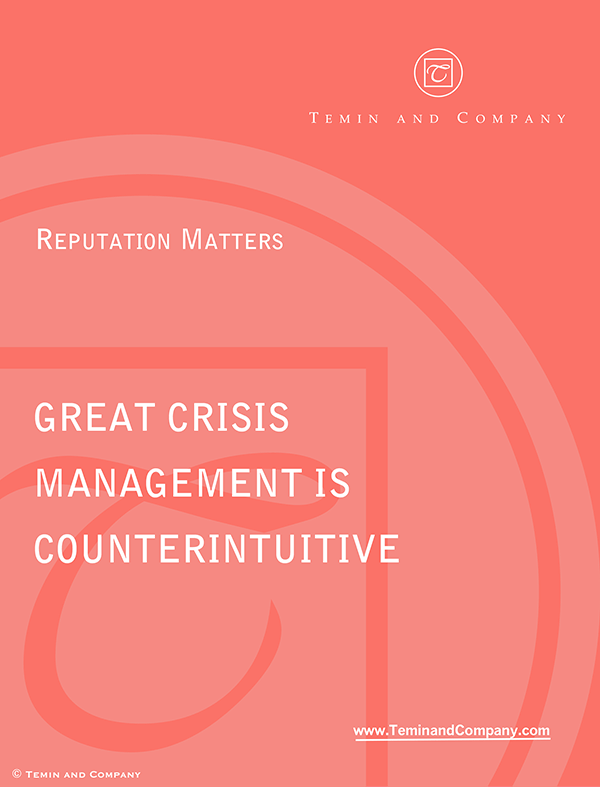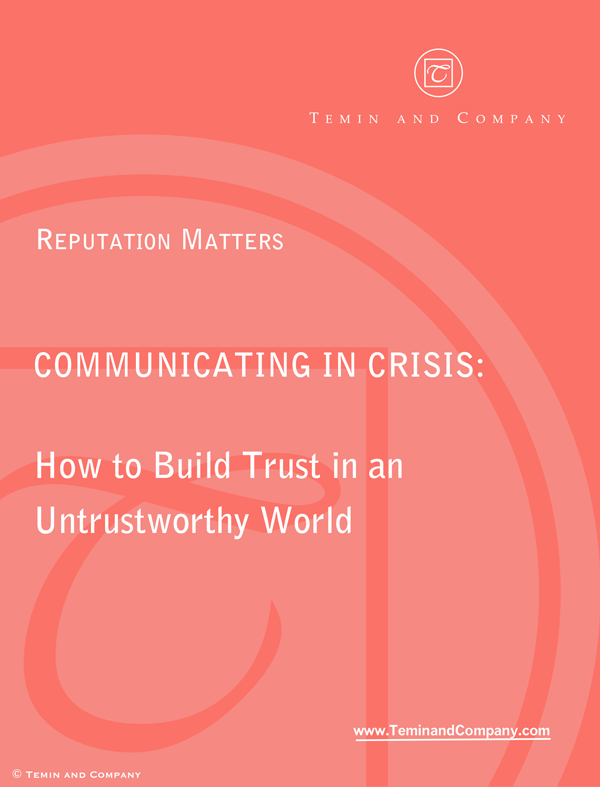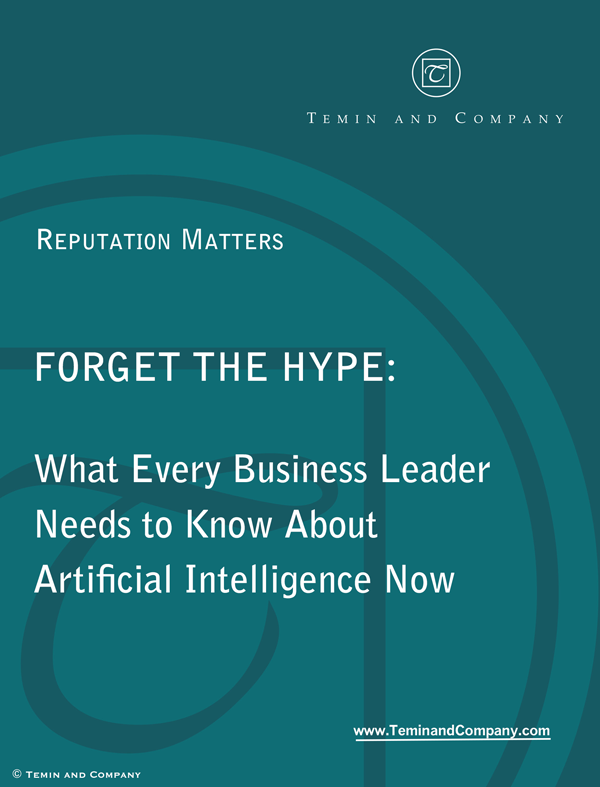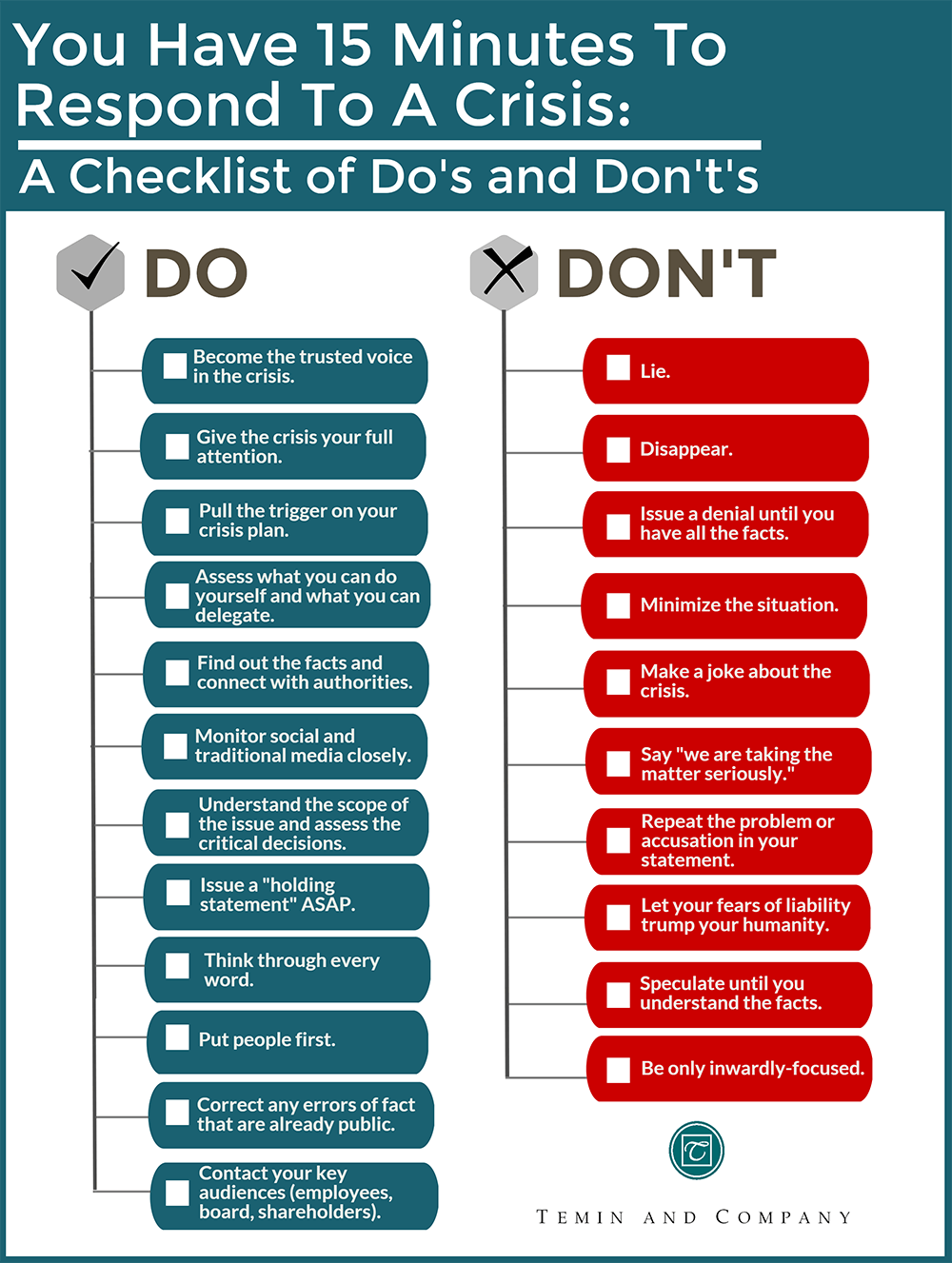Thought Leadership–Forbes “Reputation Matters”
White Papers»
"Reputation Matters" White Papers seek to offer deeper insight on a wide range of topics we help clients address.
Which Republican Candidate Would You Trust In A Foxhole?
Leadership, “Reputation Matters” Forbes, October 29, 2015
Arguably, our American president is really the world’s Crisis-Leader-in-Chief. We rely on him – or her – to calmly, wisely, and brilliantly lead us through untold global craziness, back to economic progress, justice, security, and freedom.
So, politics aside, let’s try to rate last night’s 10 Republican debaters on their crisis leadership performance. In other words, when the going gets rough, which candidate would you want next to you in a foxhole? More importantly, who would you trust to get you out? […read more]
Resilience — New Research Helps Us Bounce Back Quicker, Better From Life’s Trials And Tragedies
Leadership, “Reputation Matters” Forbes, August 31, 2015
How do we become more resilient leaders, executives, entrepreneurs, parents, people? Here’s a quick checklist, informed by new brain research:
- Practice overcoming hurdles in everyday life
- Have a purpose
- Accept reality with a positive attitude
- Learn how to improvise
- Meditate (mindfulness training)
- Exercise
- Develop an abiding sense of humor
- Build strong support networks
- Look for role models
- Keep your mind flexible
- Face your fears
- Reframe
- Nurture a strong sense of self
- Know when to be kind to yourself
- Be compassionate
Resilience is a concept that exists in almost every culture around the world: the ability to bounce back from adversity, from whatever setbacks life deals you, in order to come back and conquer another day.
Resilience has been the Holy Grail for those individuals or organizations that have gone through crisis and adversity and want, literally, to “get their lives back.”
But while it has always been known that some people, and some organizations, recover better than others, new brain and behavioral research is now shedding some light on why. Even better, it is showing that we can cultivate resilience in ourselves before we even need it. […read more]
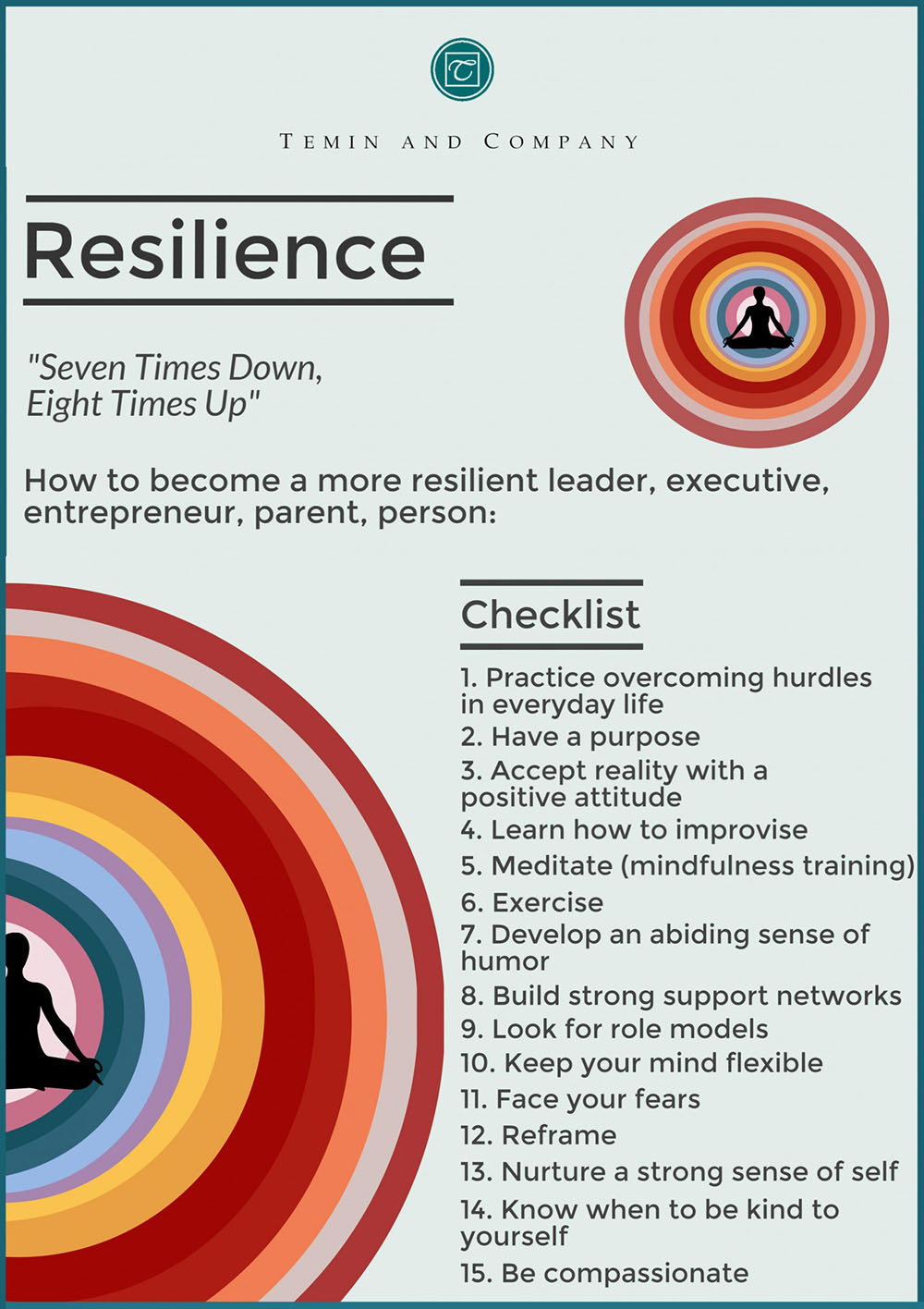
Airbnb Meets The Bates Motel: Crisis Lessons For The Overly Trusting Traveler
Leadership, “Reputation Matters” Forbes, August 17, 2015
“Never get into a car with a stranger” my mom told me throughout my childhood. “Don’t trust your safety to someone you don’t know really well, and even then be vigilant, because they may not have your best interests at heart the way we do.”
But how does this old-school advice jibe with the Airbnb, Uber, “sharing economy” generation who are driven by unlicensed strangers and stay in people’s — who they don’t know — homes around the world? What happens when your Airbnb host turns into Norman Bates? (Or your guest turns out to be the Zodiac killer?)
It is indefensible how ill-prepared Airbnb, Uber, and a host of other high-flying, trust-based sharing companies are for crisis, and customer and provider protection when trust goes awry. It is equally shocking how unprepared their trusting customers and providers are when they realize their trust is misplaced.
“Trust is hard won but easily lost,” the saying goes. But in the new sharing economy, it actually might be the exact opposite: trust is too easily given, and too hard lost. And the lessons, to individuals as well as companies, are tough ones. So, what lessons should companies, and the consumers who patronize them, learn? […read more]
You Have 15 Minutes To Respond To A Crisis: A Checklist of Dos And Don’ts
Leadership, “Reputation Matters” Forbes, August 6, 2015
When a crisis hits, how you respond in the first 15 minutes can make or break your organization – and your reputation.
While we all know that crisis management training is critical for leaders and boards today, much of it still tends to be shopworn, focusing on the lessons of yesterday. The new climate of ultra urgency is rarely emphasized sufficiently.
Yet I have found that in those first 15 minutes of a crisis your response must be exactly the right message, delivered in exactly the right words, to the right audiences, in just the right way – or you will have to deal with your mistakes for days, weeks, even months to come.
Immediate response and indelible accountability – that’s a tall order for any leader. […read more]
Kindness Amidst Conflict: Respect Across Diversity
Leadership, “Reputation Matters” Forbes, April 30, 2015
Have you noticed how the world is getting meaner and meaner? Not just over social media, prime time television, or the legislative process, but everyday — as authority becomes less trustworthy, and attacks against leaders, as well as anyone who seems “different,” turn more personal, ugly and destructive.
If I don’t “like” what you have to say, or you disagree with me in any way, I can take to Yik Yak, or almost any social media platform, and anonymously damn you to hell and back. Or worse. […read more]
The Botched Interview: Sony’s Flawed Crisis Response
Leadership, “Reputation Matters” Forbes, December 29, 2014
Indecisiveness is rarely a winning response in crisis. But in the case of Sony ’s handling of The Interview I fear that the leadership problem is more than that. It involves knowing — or not knowing — exactly what guidance to listen to, and what decisions to make before, during, and after a crisis occurs. No waffling is allowed.
In a series of moves that seem as if they were actually taken from the ill-fated movie itself, Sony has exhibited not only a lack of judgment, but a seeming propensity to cave, successively, to each strong opinion that has been thrust upon it. And there have been a lot this holiday season.
First the highly ill-advised movie advocating the murder of an actual living person was green-lighted – we assume due to pressure from powerful Hollywood players. (Hadn’t they heard of the fictionalized movie countries of the Duchy of Grand Fenwick in The Mouse That Roared or Sarkhan in The Ugly American?) Then when a devastating cyberhack, possibly from the country ruled by that actual living person, caused the entire studio – and its employees – to pay dearly for the decision, there was stunned silence. The hackers’ subsequent illegal release of mortifying emails showing off the industry’s underbelly prompted a tepid apology, and possibly a willingness to acquiesce to the hackers’ demands before more emails were released. And finally, when the hackers appeared to threaten violence to movie-goers, and major theater chains announced they would not show the film, Sony pulled it for good. So they said.
But now, in the face of the administration’s objection to a foreign government threatening our freedom of speech, and the willingness of some smaller theaters to show it, thereby bringing in some revenue, it’s baaaaaack. My head is spinning faster than that girl’s in The Exorcist. […read more]
Must We Vilify Satya Nadella?
Leadership, “Reputation Matters” Forbes, October 11, 2014
I know that it makes a good meme. And I know that we all love it when a powerful leader puts his foot in it and states something that either is preposterous or impolitic. And I know we all love to pile on in outrage over social media when something like this happens. Heck, I do too sometimes. But I think we may be being a bit counterproductive here. And I think we are taking some cheap shots.
Because the conversation around women, promotions, raises, and getting and asking for your due, is nuanced, inconvenient, and sometimes based on what we want to be true rather than what is.
After all, the Microsoft CEO was addressing the highly prestigious women in technology conference, the Grace Hopper Celebration of Women in Computing, on Thursday as the first man to ever do so. That took some real commitment. And, he was being hosted by his board member, computer scientist Maria M. Klawe (Microsoft now has 3 women board members, thought to be the beginnings of best governance practice) who is also the first woman to lead Harvey Mudd College (of engineering). And she opened by saying she adores him. This is not the profile of a woman-hating Philistine, it seems to me. Perhaps – or most certainly – he has been a bit naïve, but we can help him with that. […read more]
The Role Of Boards In Crisis: 10 Steps For Directors Before, During And After Crisis
Leadership, “Reputation Matters” Forbes, October 8, 2014
We see it every day in our headlines: as crisis has become a new global norm, the board’s responsibility in crisis is changing rapidly.
No longer is plausible deniability acceptable, either for boards or for management. Corporate and nonprofit boards alike are expected to know of problems that are brewing deep within their organizations. And they are expected to act upon that knowledge swiftly. The public, shareholders, and media are holding boards responsible for corporate missteps as never before, and therefore the role of governance leading up to, during, and after crisis is transforming as we speak. […read more]
Malala’s Wisdom: 14 Quotes From This Inspiring 17-Year-Old Leader
Leadership, “Reputation Matters” Forbes, August 18, 2014
“We must help girls fight all the obstacles in their lives, and stand up and speak bravely and overcome the fear they have in their hearts,” Malala Yousafzai said at a private dinner held by the Hudson Union Society this past Friday night, August 15th, which I was honored to attend.
And she should know. One of the most inspiring figures of this century, 17-year old Malala has recovered from being shot in the head in 2012 by the Taliban in the Swat Valley of her native Pakistan…because she wanted to go to school, and advocated that in a blog for the BBC when she was 11. Today, not only has she recovered, she has proven to be a model of resilience, courage and abiding strength for girls, women, and citizens in the Swat Valley, and world-wide. […read more]
Mary Barra’s Defining Moment: Can GM Become The Next Tylenol?
Leadership, “Reputation Matters” Forbes, April 2, 2014
Leaders rarely get to choose their defining moments. The issues that will eventually define their reputations are most often thrust upon them…and usually those issues are far, far different from what the leaders would have chosen if it were up to them.
And so it is with Mary Barra. Only three months into her CEO stint at General Motors, her defining issue has found her; and it is a crisis that she most certainly did not choose.
When departing CEO Dan Akerson announced why he had recommended Ms. Barra for CEO, he said that she had an uncanny ability to “make order out of chaos.” Today we surely wonder if he had any inkling of just how much chaos there would be in her first 100 days. Let’s hope he did not. […read more]
White Papers»
"Reputation Matters" White Papers seek to offer deeper insight on a wide range of topics we help clients address.




